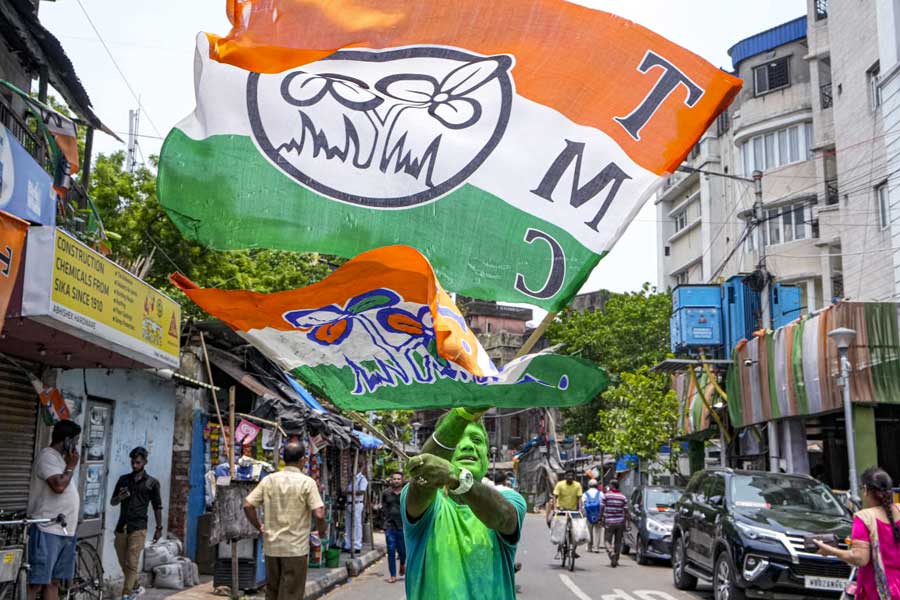Trinamool Congress on Tuesday came up with a stellar performance in Jungle Mahal — the BJP's stronghold since 2018 — by winning three out of five seats that the BJP won in the 2019 general elections.
In the 2019 Assembly polls, the BJP had swept Jungle Mahal by winning all five seats — Purulia, Jhargram, Bankura, Bishnupur and Medinipur — in areas that used to be a bastion of the TMC since Mamata Banerjee ascended to power in 2011.
As the result of this Lok Sabha polls came up on Tuesday, it was found that the TMC won three seats — Jhargram, Bankura and Medinipur.
"It was a victory for our party as the BJP won all those five seats in the 2019 Lok Sabha polls. We are happy that the people of Jungle Mahal trust us again and the development agenda of Mamata Banerjee," said a senior TMC leader in Calcutta.
Jungle Mahal comprises four districts — Jhargram, Purulia, Bankura and West Midnapore.
According to provisional data, TMC candidates from Jhagram, Bankura and Medinipur won this election by a margin of 1,74,048; 32,778 and 27,191 votes respectively.
Although the saffron camp won two seats — Purulia and Bishnupur, the margin of victory depicted that the saffron camp's robust organisational strength in the state's western region was dismantled this time.
In 2019, BJP's Jyotirmoy Singh Mahato won the Lok Sabha election by a margin of 2,04,732 votes. This time, the sitting MP Mahato won the seat by a margin of only 16, 635 votes (provisional data).
In Bishnupur, sitting MP Saumitra Khan, who won the 2019 Lok Sabha election by a margin of 78,047 votes, managed to win by a narrow margin of 6,670 votes.
Trinamool leaders said the party took a multi-pronged strategy for Jungle Mahal in this election that helped it better last time's performance in the stronghold of the BJP.
Political experts said the politics of Jungle Mahal is critical because of identity politics as multiple groups belonging to SC, ST and the OBC play significant roles in the electoral outcome. There is a complex political equation because of conflicts between the tribals and the Kurmis over the ST tag.
"The TMC this time turned the tables of identity politics on the BJP, which worked perfectly. As the Kurmis fielded their candidates from four out of the five Lok Sabha seats, the BJP's vote bank was shattered. The TMC also reached out independently to other groups like Santhal, Munda, Shabar and Bhumij," said a political observer.
In Jungle Mahal, the TMC campaigned that through the Uniform Civil Code, the BJP wanted to demolish their existing practices and rituals.
"The people of Jungle Mahal kept their faith in the developmental politics of Mamata Banerjee. They witnessed how the BJP did not do anything for them even after winning all five seats from the region. This time people belonging to the SC and ST communities understood that the BJP wants to intervene in their existing practices by introducing the UCC," said Samirul Islam, a TMC Rajya Sabha MP who conducted hundreds of meetings in four Jungle Mahal districts.
A TMC leader said the party began outreach in Jungle Mahal since the 2021 Assembly polls. In 2019, the BJP gave a lead from 31 of 40 Assembly segments in the region. In 2021 the TMC won 28 seats of those 40.
The BJP leadership claimed many factors behind losing ground in Jungle Mahal. "Our party workers did not turn up properly fearing TMC's violence. If there is any fault from our side, we will address it," said the BJP leader Samik Bhattacharya.

